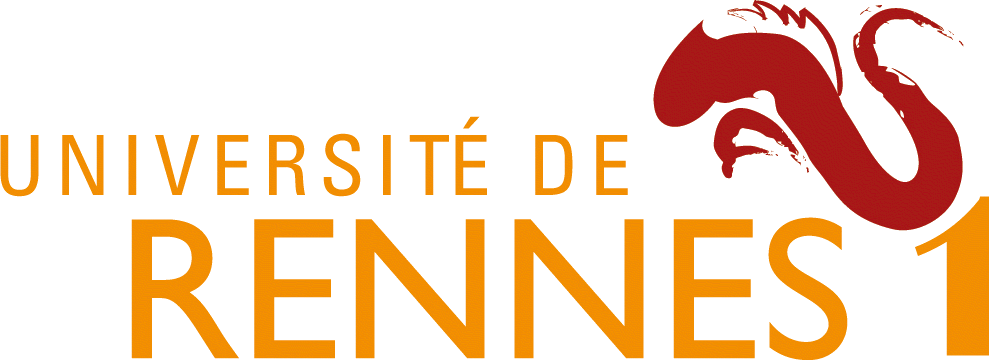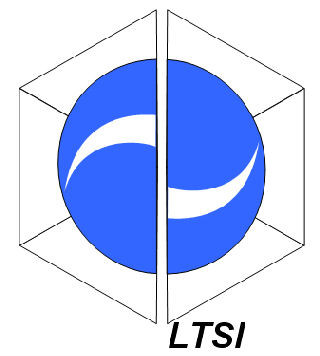News
Members
Publications
Software / Data
Job offers
Images / Videos
Collaborations
Conferences
Lab meetings: "Les partages de midi"
Practical information
Members Area
Next conferences we are in …

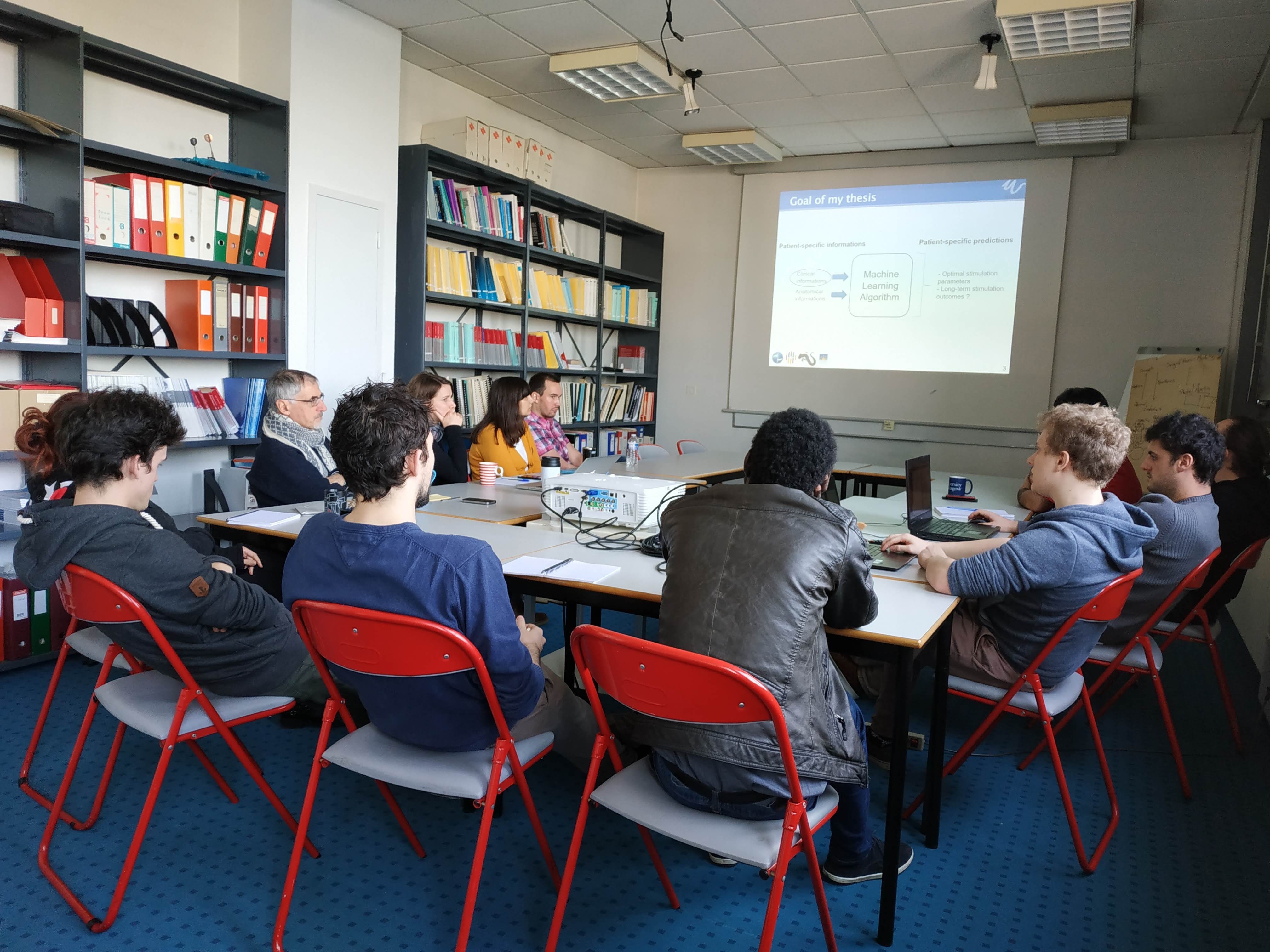
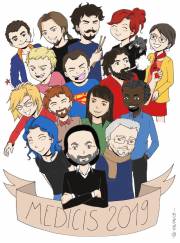
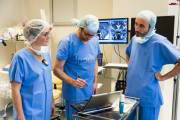
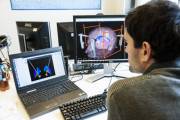
This shows you the differences between two versions of the page.
| Next revision | Previous revision | ||
|
activities:theme1:projects:smsq [2015/12/22 15:15] janin created |
activities:theme1:projects:smsq [2021/01/14 17:43] ahuaulme removed |
||
|---|---|---|---|
| Line 1: | Line 1: | ||
| - | Modeling of the "Quality" of a surgical intervention | + | <html> <div class="pageTitle">Studying and Modeling Surgical Quality through Surgical Process Modeling</div></html> |
| ====== Members ====== | ====== Members ====== | ||
| - | * [[members:arnaud.huaulme:index|Arnaud Huaulme]] - PhD student (LTSI / TIMC-IMAG) | + | * [[members:arnaud.huaulme:index|Arnaud Huaulme]] - PhD student (LTSI / TIMC-IMAG) |
| - | * [[members:pierre.jannin:index|Pierre Jannin]] - Supervizor (LTSI) | + | * [[members:pierre.jannin:index|Pierre Jannin]] - Supervizor (LTSI) |
| - | * [[members:alexandre.moreau-gaudry:index|Alexandre Moreau-Gaudry]] - Supervizor (TIMC-IMAG) [[http://membres-timc.imag.fr/Alexandre.Moreau-Gaudry//|personal web page]] | + | |
| - | * [[members:sandrine.Voros:index|Sandrine Voros]] - Supervizor (TIMC-IMAG) [[http://membres-timc.imag.fr/Sandrine.Voros/|personal web page]] | + | |
| This work was partially supported by French state funds managed by the ANR within the Investissements d'Avenir programme ([[http://cami-labex.fr/|Labex CAMI]]) under reference ANR-11-LABX-0004. | This work was partially supported by French state funds managed by the ANR within the Investissements d'Avenir programme ([[http://cami-labex.fr/|Labex CAMI]]) under reference ANR-11-LABX-0004. | ||
| Line 16: | Line 14: | ||
| ====== Description ====== | ====== Description ====== | ||
| - | Complications are important factors of outcomes in surgery. Postoperative complications have been studied for a long time and can be classified by their seriousness (e.g., the Dindo-Clavien classification [1]). Although they have been defined by the World Health Organization (WHO) more than 10 years ago [2], intra-operative complications have only been recently studied. Intra-operative adverse events are now considered as a real challenge to be addressed. For instance, they concern more than 7\% of laparoscopic colorectal procedures [3]. \\ | + | Complications are important factors of outcomes in surgery. Postoperative complications have been studied for a long time and can be classified by their seriousness (e.g., the Dindo-Clavien classification [1]). Although they have been defined by the World Health Organization (WHO) more than 10 years ago [2], intra-operative complications have only been recently studied. Intra-operative adverse events are now considered as a real challenge to be addressed. For instance, they concern more than 7% of laparoscopic colorectal procedures [3]. \\ |
| {{ :activities:theme1:rectopexy_lechaux.png?500|}} | {{ :activities:theme1:rectopexy_lechaux.png?500|}} | ||
| - | For this thesis, we focused on rectopexy, an abdominal surgery.Rectopexy is performed to correct anal prolapse by fixing the rectum to the promontory through meshes [4]. Firstly, we modeling the "typical" rectopexy and the deviation from this "ideal" surgery. For this, we chose to use cognitive task analysis with interview of surgeon and observation in the operating room and based on laparoscopic videos. With this work, we were able to describe the "typical" rectopexy with medical vocabulary on different levels of granularity. \\ | + | For this project, we focused on rectopexy, an abdominal surgery. Rectopexy is performed to correct anal prolapse by fixing the rectum to the promontory through meshes [4]. Firstly, we modeling the "typical" rectopexy and the deviation from this "ideal" surgery. For this, we chose to use cognitive task analysis with interview of surgeon and observation in the operating room and based on laparoscopic videos. With this work, we were able to describe the "typical" rectopexy with medical vocabulary on different levels of granularity. \\ |
| Secondly, we tried to detect deviations in a surgical process model and to distinguish the ones due to patient's anatomical particularities from the ones due to intra-operative events. In order to accomplish this, we use a combination of dynamic time warping and a hidden Markov model methods. Finally, we tried to identify patterns to explain and predict the appearance of intra-operative adverse events. | Secondly, we tried to detect deviations in a surgical process model and to distinguish the ones due to patient's anatomical particularities from the ones due to intra-operative events. In order to accomplish this, we use a combination of dynamic time warping and a hidden Markov model methods. Finally, we tried to identify patterns to explain and predict the appearance of intra-operative adverse events. | ||
| Line 25: | Line 23: | ||
| ====== First publications ====== | ====== First publications ====== | ||
| - | * Huaulmé A,Voros S, Reche F, Faucheron J-L, Jannin P, Moreau-Gaudry A (2014) Surgical Process Model of laparoscopic rectopexy. In: Proceedings of Surgetica 2014, Chambery, France, pp 239-241 | + | * Huaulmé A,Voros S, Reche F, Faucheron J-L, Jannin P, Moreau-Gaudry A (2014) Surgical Process Model of laparoscopic rectopexy. In: Proceedings of Surgetica 2014, Chambery, France, pp 239-241 |
| ====== Reference ====== | ====== Reference ====== | ||
| - | * [1] Dindo D, Demartines N, Clavien PA (2004) Classification of Surgical Complications: A New Proposal With Evaluation in a Cohort of 6336 Patients and Results of a Survey. Annals of Surgery 240(2):205-213, DOI 10.1097/01.sla.0000133083.54934.ae | + | * [1] Dindo D, Demartines N, Clavien PA (2004) Classification of Surgical Complications: A New Proposal With Evaluation in a Cohort of 6336 Patients and Results of a Survey. Annals of Surgery 240(2):205-213, DOI 10.1097/01.sla.0000133083.54934.ae |
| - | * [2] World Healt Organization (2005) WHO draft guidelines for adverse event reporting and learning systems. URL http://www.who.int/patientsafety/events/05/Reporting Guidelines.pdf | + | * [2] World Healt Organization (2005) WHO draft guidelines for adverse event reporting and learning systems. URL http://osp.od.nih.gov/sites/default/files/resources/Reporting_Guidelines.pdf |
| - | * [3] Kirchhoff P, Dincler S, Buchmann P (2008) A Multivariate Analysis of Potential Risk Factors for Intra- and Postoperative Complications in 1316 Elective Laparoscopic Colorectal Procedures:. Annals of Surgery 248(2):259–265, DOI 10.1097/SLA.0b013e31817bbe3a | + | * [3] Kirchhoff P, Dincler S, Buchmann P (2008) A Multivariate Analysis of Potential Risk Factors for Intra- and Postoperative Complications in 1316 Elective Laparoscopic Colorectal Procedures:. Annals of Surgery 248(2):259-265, DOI 10.1097/SLA.0b013e31817bbe3a |
| - | * [4] D. Lechaux, “Traitement des prolapsus du rectum par abord laparoscopique,†EMC - Tech. Chir. - Appar. Dig., vol. 2, no. 1, pp. 1–7, Jan. 2007. | + | * [4] D. Lechaux, Traitement des prolapsus du rectum par abord laparoscopique EMC - Tech. Chir. - Appar. Dig., vol. 2, no. 1, pp. 1-7, Jan. 2007. |
| + | |||
| + | ====== Main Collaborators ====== | ||
| + | |||
| + | * [[http://membres-timc.imag.fr/Alexandre.Moreau-Gaudry|Alexandre Moreau-Gaudry]] - Supervizor (TIMC-IMAG) | ||
| + | * [[http://membres-timc.imag.fr/Sandrine.Voros/|Sandrine Voros]] - Supervizor (TIMC-IMAG) | ||
| + | * Pr Faucheron J-L (CHU Grenoble) | ||
| + | * Dr. Reche F (TIMC-IMAG) | ||
| + | |||
| + | ====== Main Fundings ====== | ||
| + | * [[http://cami-labex.fr/|Labex CAMI]] | ||

